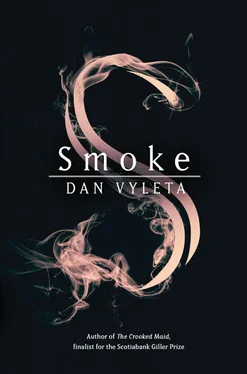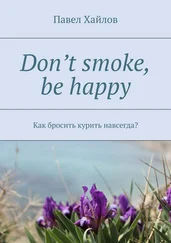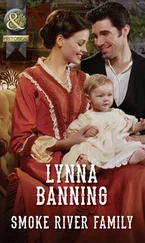Thomas looks up, forces a smile through the tension on his face.
“He’s an arsehole, of course, a gaping arsehole. But there are worse.”
ф
There are other, confusing aspects to life after the Trip. For all the darkness they brought back with them, a new spirit has taken hold of the upper school, a sort of pride. It takes Charlie a while to understand it is the afterlife of Renfrew’s words, his demand that they return to London when they come of age. Students can be found standing in huddles discussing “politics.” It is time, some say, to join the movement for “reform.” Parents are criticised, not individually but as a generation, and slogans are bandied about. These are seductive and evade concrete meaning. “The return to the cities” is one of them. “Scientific theology” is another. “Meritocracy.” “Rationalism.” “Regeneration.” Even (more quietly, with guarded smiles): “Revolution.” On occasion one of these impromptu speeches results in a belch of fine, light Smoke. The boys so chastised by the emission of their bodies observe this Smoke with genuine shame. It is, they say, a judgement on the purity of their motives. They invent punishments that they impose on themselves long before Renfrew has had the opportunity to study their Soot.
Interestingly, the ringleaders of this talk are boys who have been at the periphery of things before. Not one of them is a member of the highest aristocracy. Charlie, usually popular across factions and cliques, finds himself avoided: his father is a prominent Tory. Julius, too, is sidelined, participates only by listening, an odd little smile on his face. In fact, his whole behaviour appears changed, especially as regards his treatment of Thomas. The first few days after the Trip he was his usual self: jeering, pompous, and hostile, baiting the younger boy at every opportunity. Now he is watching; seems omnipresent in fact, always at the doorway or standing halfway down the hall, his hands in his pockets, his dark eyes everywhere. He, too, is having daily discussions with Renfrew. It may be that it is these that account for the change.
Whatever the reason, it has caused considerable confusion amongst Julius’s cronies — the whole complex web of guardians, prefects, and informers that upholds the structure of the school more surely than the teachers or the bricks and mortar. They have grown unsure of themselves, less inclined to impose their authority. In the lower school in particular, Charlie hears, it leads to more horseplay, more pushing of the rules, more arguments, more quarrels, more Smoke. But then, it’s almost Christmas. Everyone will be going home soon. Perhaps it is nothing more than this.
ф
With Thomas busy and preoccupied, and he himself adrift between the group of “rebels” and those representing the “old order,” Charlie he finds himself with time on his hands. For a full week he searches for a sense of purpose, sits around, mopes, turns pages in books he fails to read.
Then he finds it.
It starts with a letter to his parents. The letter is overdue — Charlie is to write every Sunday without fail — but he did not feel up to it before. Even now each sentence crawls reluctantly out of his pen. The words sit on the page with a clarity that feels unearned and mock the chaos of his emotions. Part of the problem is that he does not know what to say about London. “I was very saddened to see the preponderance of sin,” he writes then crosses it out immediately. Not only is it inaccurate but it reads as though he is eighty years old and lives between the covers of a book (and a dusty book at that). “I hated it,” he tries again, but again crosses it out, because this, too, is false, inadequate, short of the mark. It takes six drafts in all for him to produce a satisfactory version. In not one of them does he mention the execution.
Near the end of the letter, in the only paragraph he writes with ease and pleasure, for it conveys well-wishes to his sister and his excitement about coming home, he includes the following passage: “A week or two ago the teachers here received a shipment of tea and sweets from Beasley and Son. Naturally this caused some interest amongst us pupils — especially the sweets! Would it be cheeky for me to ask whether a packet of B&S’s might not also find its way into my Christmas stocking?”
He finishes with a postscript asking whether it would be agreeable if he invited a schoolmate to join the family for all or part of the holiday. “I do not know what his commitments are,” he adds, punctiliously, “but am anxious for you to meet him. He is my best friend.”
He sends the letter by the afternoon mail and receives an answer with the customary promptness the day after next. Yes, the family are looking forward to his coming, his mother writes, and are planning a trip to their house in Ireland, weather permitting. Yes, he may bring home whomsoever he wishes, however obscure his family name; and all the more so if the boy in question is dear to his heart.
As to the sweets, Charlie has to read the letter twice until he finds an answer to his request. It is hidden away in a paragraph describing Christmas preparations and in particularly the tree that the servants put up “only yesterday” and whose branches are “so rich and wide that there will hardly be any space for the family to fit beside it”; “nor is there hardly any chance that Father Christmas, who in some picture books appears a rather portly fellow, will be able to squeeze his girth into the room to deliver any presents.” “It may be just as well,” his mother goes on, “that, by the evidence of your letter, you are growing up very fast and have no more need for superstitions. It is all the more important that your maturing desires, regarding Christmas presents and otherwise, be married to your discretion, both in public utterance and private.” There the paragraph ends. The next spends an inordinate number of words reminding Charlie to wear warm socks and underwear, and to dry off properly after taking a bath.
Charlie wishes that his mother could put matters more simply, but has learned that it is the nature of letter-writing that one must state things in a roundabout and somewhat poetic way; otherwise letters would become frightfully short. All the same he finds himself returning time and again to that curiously worded admonishment concerning his “desires.” It appears his mother is telling him to shut up. This is unusual in itself; as an answer to his lighthearted request it is also rather odd. More than odd.
A riddle.
It is fair to say that Charlie is intrigued.
ф
The following afternoon finds him setting out to the little market town about half an hour’s walk from the school. Visits there are one of the privileges he enjoys as an upper-school boy in good standing, though they are limited to a single outing a term. The day is grey and cold, the skies threatening snow. Charlie walks briskly, trying to keep warm, but there is no way to keep the frost out of his hands and feet. Town is a butcher’s, a baker’s, a greengrocer’s, and a haberdashery. There is also a public house near the river and a Saturday market, though none of the boys have been to either, their privileges extending neither to weekends, nor to pubs. In a side street, not far from the market square, there is yet one other establishment. By three in the afternoon, when the bakery’s bread is all sold out and no longer dominates the smells of the town centre, one can find it by scent alone. A sticky smell: baked apples, cloves, and cinnamon along with something darker, black treacle burnt solid on the iron of a red-hot hob. HODGSON’S SWEETS, DRIED FRUIT, AND NUTS. The sign of a date tree, stooped low under its load.
Inside the shop the smell of sugar is near-overpowering. The shop’s heat, too, rushes in on Charlie, puts a tingle in his fingers, toes, and cheeks. A young gentlewoman is there, buying candied fruit and almonds. Her waist, seen from behind, is impossibly slender and accentuated by the bundled opulence of her skirts. Attending her is Mr. Hodgson: a short, balding man with pockmarked cheeks and tidy movements. At his feet, rolled up snout to tum, lies a runty whippet, as skinny as they come. The dog appears to be sleeping, dreaming; sweeps its tail across the floor in jerky crescents and sounds quiet, high-pitched yelps. It is, it occurs to Charlie, a very good thing that animals do not smoke.
Читать дальше












